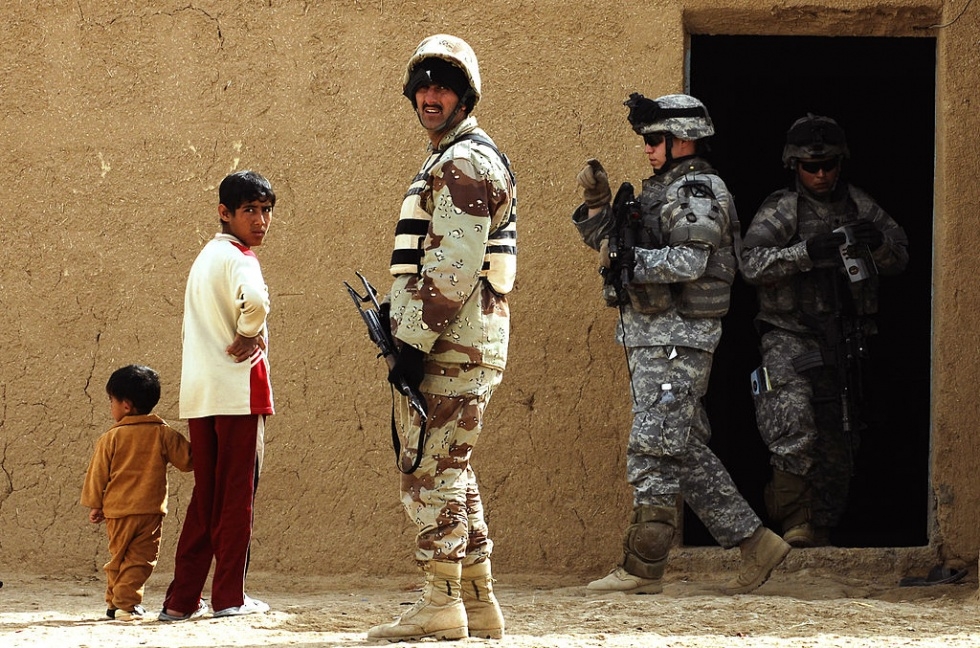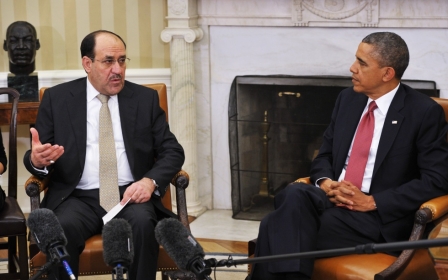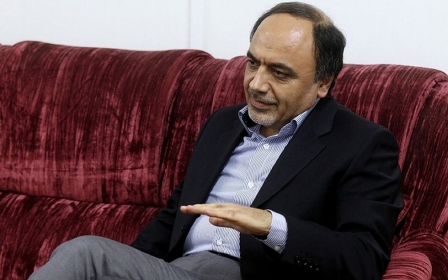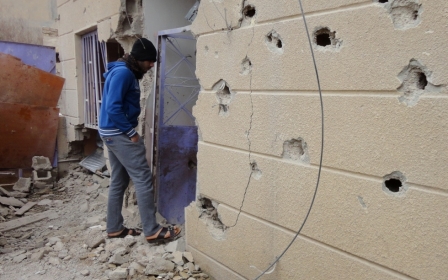US to send 275 troops to Iraq: Obama

The US will deploy about 275 US military personnel to Iraq to help American personnel and protect the embassy in Baghdad, President Barack Obama said late on Monday.
The force, which began deploying on Sunday, has been sent "for the purpose of protecting US citizens and property, if necessary, and is equipped for combat," Obama wrote in a letter to Congressional leaders.
"This force will remain in Iraq until the security situation becomes such that it is no longer needed."
About 160 troops are already in Iraq, including 50 US Marines and more than 100 soldiers, most of whom have arrived late on Monday.
The move comes as fighters from the Islamic State of Iraq and the Levant (ISIL) battle Iraqi security forces for control of a strategic northern town and Washington weighs possible drone strikes against the militants.
Last week, Obama ruled out redeploying US troops to the troubled country but said that his policy teams were mulling over options and would come up with a strategy soon.
While Obama said the troops are not expected to engage in direct combat or to directly assist the government of Iraqi President Nuri al-Maliki, the military personnel will be fully armed and are allowed to defend themselves or US citizens if they are attacked.
Their first and primary mission will be to help State Department relocate some embassy staff from Baghdad to the consulates in Erbil and Basra, as well as Amman, but the troops are likely remain in Iraq until the security situation improves. The embassy will remain open, and most personnel will remain in place in Baghdad, the statement added.
Separately, US officials told AP that a possible limited special forces mission - which has not yet been approved - was topping the list of military options currently under consideration.
If approved, the force would focus on training and advising beleaguered Iraqi troops, although it was unclear how quickly these troops could arrive and whether they would remain in Baghdad or be sent to the country’s north.
Tens of thousands of Iraqi army personnel fled their posts in northern and western Iraq last week in the face of a Sunni offensive which saw old militias loyal to former President Saddam Hussein, al-Qaeda-linked groups and Islamic State in Iraq and the Levant (ISIL) fighters sweep through swaths of Iraq.
Thousands of volunteers have since flocked to help the Maliki forces and the army has managed to launch a counter-offensive in central Iraq, but confidence is still believed to be low.
Saudi intelligence sources, on Monday, told CNN that the Iraqi military command structure was crumbling and that desertions remained high.
The loose alliance of Sunni forces are said to have killed scores of Iraqi soldiers as they pushed an advance on the capital, including in a "horrifying" massacre that has drawn international condemnation. In the latest fighting on Monday, militants took control of several neighbourhoods of Tal Afar, a mainly Shiite Turkmen town between the rebel-held second city of Mosul and the Syrian border, officials and residents said. More than half a million people are now said to have been displaced as a result of the fighting.
Iran and the US
The scale of the onslaught has already prompted Iran to allegedly send troops to assist the beleaguered Maliki government. Last week it was reported that 2,000 advance troops had crossed the border and that more could well be on their way. Iran quickly denied the reports but has clearly stated that it stands ready to assist Iraq, with Iran's elite Quds Force, commander General Ghasem Soleimani, visiting Iraq on Sunday to advise the government.
After days of speculation whether Iraq could push long-time foes Iran and America closer together on Monday it was finally confirmed that diplomats from the two countries had “briefly” discussed the situation on the side-lines of the nuclear talks in Vienna, Austria.
The meet is expected to set the stage for additional contacts between the US and Iran on how Sunni militants threaten Iraq, the government in Baghdad and all countries in the region.
"What's happening in Mosul is a wake-up call for the administration that the crisis in Syria is never simply going to stay in Syria and that crisis management is going to entail American leadership," Suzanne Maloney, a senior fellow at the Saban Center for Middle East Policy told AFP.
"I think there is an onus on the [Obama] administration to engage in problem solving rather than simply crisis management and that means talking to all the parties in the region, particularly the Iranians."
However, a US official told reporters that the talks would not include military discussions but rather focus on the "need to support inclusivity in Iraq and refrain from pressing a sectarian agenda".
On Sunday, Secretary of State John Kerry said the US was willing to talk to Iran over ways the two long-time foes might help stop the insurgents.
In an interview, Kerry said the US would "not rule out anything that would be constructive" but stressed that any contacts with Iran would move "step-by-step".
It was Washington's first explicit overture to Tehran as the two countries have not had official diplomatic ties for over 30 years and support opposing sides in the bloody Syrian civil war that is raging next door and has also been exasperated by ISIL and other militant fighters.
New MEE newsletter: Jerusalem Dispatch
Sign up to get the latest insights and analysis on Israel-Palestine, alongside Turkey Unpacked and other MEE newsletters
Middle East Eye delivers independent and unrivalled coverage and analysis of the Middle East, North Africa and beyond. To learn more about republishing this content and the associated fees, please fill out this form. More about MEE can be found here.




